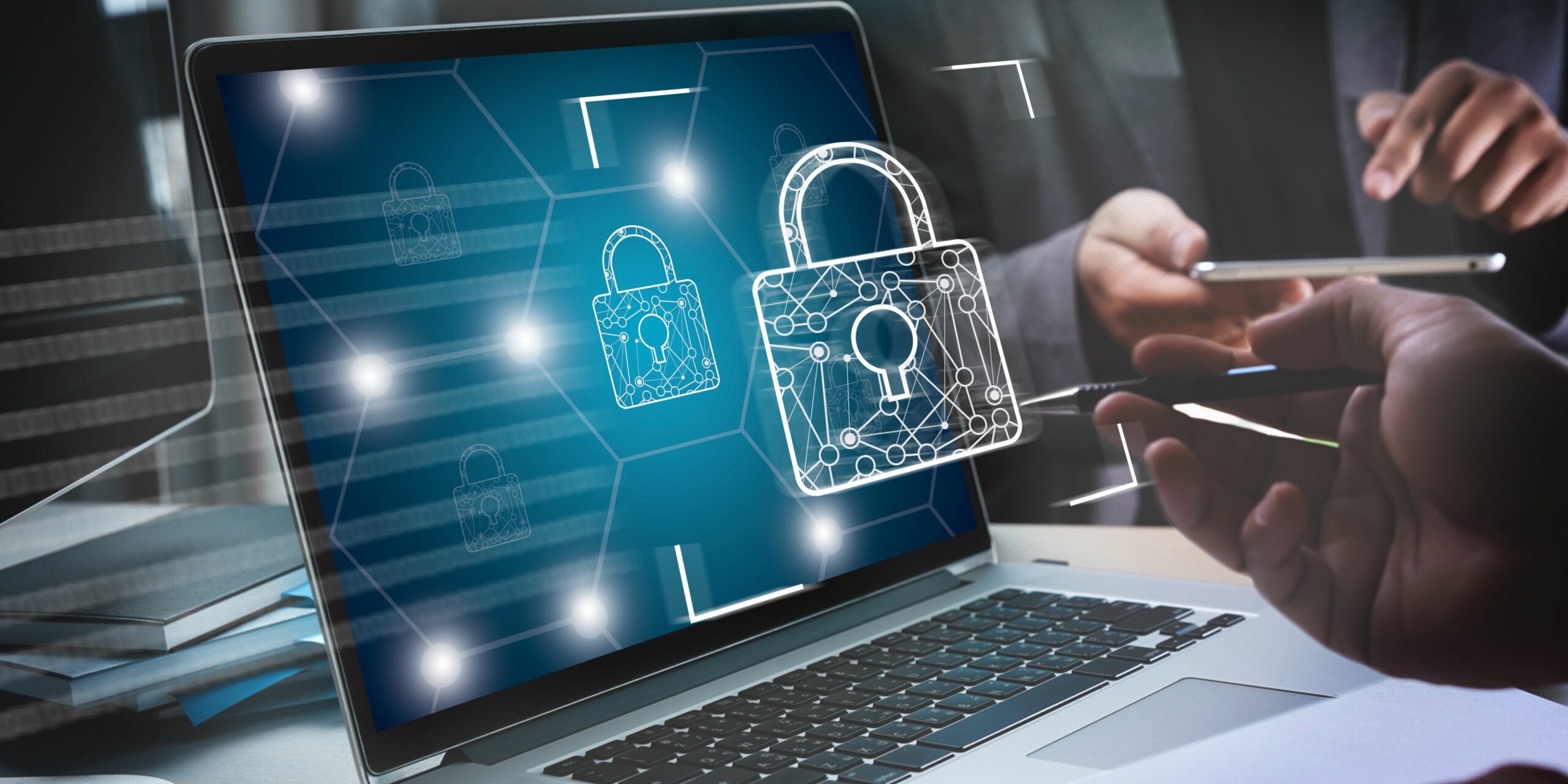 With the proliferation of computers, it is important to understand how to keep them safe. This article will discuss strategies that can be used to protect computers from malicious actors and software.
With the proliferation of computers, it is important to understand how to keep them safe. This article will discuss strategies that can be used to protect computers from malicious actors and software.
It will cover topics such as installing antivirus software, using strong passwords, backing up data, and keeping operating systems updated. By following these guidelines, it is possible to significantly reduce the risk of cyberattacks and other threats.
In addition, this article will discuss the importance of implementing security measures in a timely manner in order to ensure maximum protection for computers.
It will also provide resources where users can find additional information about computer security. As well as tips for staying safe online. By understanding and applying the information provided in this article, computer users can take steps to secure their devices against potential threats.
Installing Antivirus Software

The installation of antivirus software is an essential step to keep a computer safe. Antivirus software actively monitors the traffic entering and exiting a computer, which helps to detect any malicious code or activity.
It can also provide restricted access to certain areas of the system, preventing unauthorized users from gaining access. Advanced antivirus solutions can even scan emails, files and websites for threats before they are opened or visited. This helps to ensure that no malicious code is allowed into the system and keeps the computer safe from potential damage.
By using a combination of these features, antivirus solutions can protect computers from a wide range of security threats.
You may also like: 10 Ways To Protect Your Computer From Viruses
Using Strong Passwords

The importance of creating strong passwords and using a password management system cannot be overstated. Without these two layers of security, your computer is at risk of being hacked. Leaving you vulnerable to data theft and privacy breaches.
In order to protect your computer from malicious actors, it is essential that you create and manage strong passwords while following best practices in cyber security. Creating strong passwords can be difficult, but there are a few simple tips that can help.
First, choose a unique password for each account or website with which you interact. This will ensure that if one account is compromised, the others remain secure. Additionally, use multiple types of characters when creating a password including uppercase letters, lowercase letters, numbers, and symbols. Finally, make sure your passwords are longer than 8 characters. Also, avoid using common words or phrases that could be easily guessed by an attacker.
Using a password management system also helps to keep your computer safe by making it easier to remember complex passwords without having to write them down on paper or store them insecurely in an online document. Password managers securely store all of your credentials in an encrypted format. This way, they can only be accessed with the correct master password. They also generate random passwords for new accounts so that attackers have difficulty accessing any newly created accounts.
With these two steps combined – creating strong passwords and using a password manager – you can greatly reduce the risk of having your computer hacked while keeping your data safe and secure online.
Backing Up Data

- Automatic backups are a method of backing up data in which files are regularly copied to another location without user input.
- Cloud storage is a service that allows users to store their data in an off-site location, providing increased security for their files.
- Automated backups are advantageous as they can occur at regular intervals and require minimal user interaction.
- Cloud storage can provide the user with the peace of mind that their data is secure and can be accessed remotely.
Automatic Backups

Scheduling backups of data is an important part of keeping computers safe. Automatic backups are a must for any computer user, as they provide the ability to quickly and easily recover lost or damaged data.
By scheduling regular backups, users can ensure that their most important files are saved in the event of a power outage, hardware failure, or other type of system disruption. Data recovery becomes much easier when there is an existing backup to restore from.
Scheduling automatic backups can also save time by automating the process and allowing users to focus on other tasks. It is recommended that users schedule their backups on a weekly or monthly basis depending on how often new data needs to be saved.
This will ensure that all necessary data is backed up and ready for recovery in case of an emergency. Furthermore, it is beneficial to keep multiple copies of different types of data. Such as documents, photos, videos, music etc., stored in different locations in order to maximize security and minimize risk of data loss.
You may also like: How many Amps does a Computer Use
Cloud Storage

In addition to local storage backups, cloud storage is becoming increasingly popular as a more secure and convenient way to store data.
Cloud storage solutions provide users with remote access to their files from any computer or device connected to the internet. This means that users can access their data from anywhere in the world without needing to carry physical media such as hard drives or flash drives.
Additionally, cloud storage solutions are typically encrypted which reduces the risk of identity theft and other malicious activities. As such, cloud storage can be an effective way for users to securely store important files while still having the convenience of being able to access them from multiple locations.
Furthermore, many cloud services offer automatic backup features which can help make sure that critical data is safe even if a user’s computer crashes or malfunctions.
In summary, cloud storage provides users with an additional layer of security and convenience when backing up data.
Keeping Operating Systems Updated

Backing up data is an essential step in protecting a computer from potential harm, but it is not the only measure to be taken. Keeping operating systems updated is also necessary to maintain computer security.
This includes updating software and hardware, as well as implementing security measures such as securing credentials and monitoring changes.
Software updates help to ensure that programs are running with the latest security patches and bug fixes. Software vendors regularly issue updates for their products to address vulnerabilities that have been identified. It is important to install these updates promptly when they become available in order to protect your system from malicious attacks or data breaches.
Hardware components should also be updated regularly in order to maximize performance and reduce the risk of malfunctioning. Securing credentials, such as usernames and passwords, can help protect against unauthorized access.
Monitoring changes made to the system can provide an additional layer of protection by alerting administrators if an unexpected event occurs on their computer network. By staying informed about current developments in cybersecurity, users can stay ahead of any potential threats and take proactive steps to secure their systems.
Implementing Security Measures In A Timely Manner
It is important to maintain the security of a computer system. But it can be challenging to do so in a timely manner. Some may argue that it takes too much time and effort to secure networks. However, investing resources into the process can result in a more efficient and effective outcome.
To keep a computer safe, it is essential to implement the following measures:
- Regularly update all software applications and operating systems;
- Use strong passwords for each account;
- Utilize two-factor authentication when available;
- Install anti-virus or malware protection programs.
These measures help protect computers from potential threats such as cyberattacks, viruses, and data breaches. Implementing these steps in a timely manner ensures that any security risks are minimized. It also creates a secure environment for conducting business activities.
Security should not be taken lightly, as protecting your data is paramount to avoiding costly consequences in the future.
You may also like: Best Software for Temperature Monitoring
Conclusion
The importance of maintaining the safety of your computer cannot be overstated. With cybercrime on the rise, it is essential to take proactive measures to protect your computer from malicious activities.
Installing an antivirus program, using strong passwords, backing up data and keeping operating systems updated are all important steps that should be taken to ensure maximum security. Additionally, timely implementation of certain security measures can help mitigate risks and keep your computer safe.
As per a recent survey by Norton Security, nearly 30% of Americans do not use a password manager. Underscoring the need for stronger password practices. It is imperative that users become more vigilant in protecting their computers. And follow best practices when it comes to cybersecurity.





